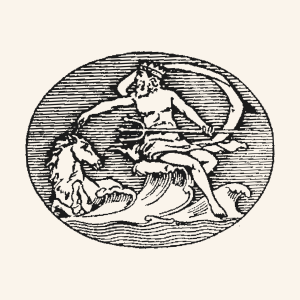A Rolex for Relief: How Gold and a Watch Got Trump to lower Swiss Tariffs
The United States and Switzerland have reached an agreement to reduce President Donald Trump's significant 39% tariffs on Swiss goods down to 15%. This deal is contingent on a Swiss commitment to invest $200 billion in the US.
"It's a great relief for our economy," stated Swiss Economics Minister Guy Parmelin, who noted that substantial harm had occurred since the higher tariffs were implemented last August.
Parmelin credited a recent meeting between Swiss business leaders and Trump at the White House as being "decisive" in finalizing the agreement.
During their visit to the Oval Office, these industry chiefs presented gifts, which included a gold Rolex watch and a custom-engraved gold bar from the Swiss refiner MKS.
Earlier efforts by Swiss President Karin Keller Sutter to sway Trump had been unsuccessful. Trump had remarked that while she "was a nice woman," she "did not want to listen."
However, following the November 4th encounter with the business leaders, President Trump indicated this week that an agreement was in development.
Jamieson Greer, the US Trade Representative, affirmed the deal was finalized, stating that "President Trump's unmatched dealmaking continues to deliver for the American people."
Chief trade negotiator Helene Budliger Artieda noted that the deal required "very hard work." Guy Parmelin added that this agreement aligns Switzerland with the 15% tariff rate that its European Union neighbors had previously secured with the US.
The Economics Minister detailed that the agreement stipulates a $200 billion direct investment from the Swiss economy into the US by the year 2028. The deal specifies that one-third of this amount will be invested in 2026.
As part of the arrangement, Switzerland will also eliminate tariffs on a specified quota of American meat exports, such as beef, bison, and poultry.
Greer commented that the agreement "tears down longstanding trade barriers" and projected that the Swiss investment would create thousands of new jobs.
The Swiss industry urgently needed this deal. Recent statistics show that tech exports to the US had plummeted by 14.2% in the third quarter compared to the previous year—a sharp decline that began after the tariff increase in August.
The involvement of Swiss industrialists seems to have been pivotal. Some of them, especially those in the luxury goods, gold, or commodities sectors, reportedly had pre-existing contacts within Trump's circle.
In September, for instance, President Trump was seen at the US Open tennis final within the Rolex VIP box, hosted by the Swiss watchmaker's CEO, Jean Frédéric Dufour.
At the event, the president reportedly questioned if the Rolex CEO would have attended had Trump not imposed such high tariffs on Switzerland.
Dufour met with Trump again last week, this time in the Oval Office. He was joined by other business leaders, including Johann Rupert of the luxury goods firm Richemont and Marwan Shakarchi of MKS.
Several days after this meeting, President Trump was photographed in the Oval Office with items that appeared to be the gifts, including a Rolex "Datejust" desk clock. A White House official confirmed to the BBC that Trump had received the two items.
It is not unusual for visitors to the Oval Office to bring gifts. UK Prime Minister Sir Keir Starmer, for example, brought an invitation from King Charles, while German Chancellor Friedrich Merz offered a framed copy of Trump's grandfather's birth certificate.
The US president receives many thousands of gifts annually, which become US property and are deposited with the National Archives. These are eventually moved to a presidential library. Presidents can keep some gifts, but they must pay federal taxes on them if they are not from a close relative.
The Swiss industry had been anxiously awaiting an agreement. Several Swiss companies had cautioned that they would need to furlough employees if the situation remained unchanged.
Yves Bugmann, head of the Swiss Watch Industry Federation, expressed his approval of the deal, which follows months of economic uncertainty.
When asked about the nature of the $200 billion investment, Helene Budliger Artieda mentioned a detailed list that includes pharmaceuticals. She specifically highlighted plans for the aircraft manufacturer Pilatus to construct a large US facility and for the train-maker Stadler to broaden its operations in Utah. Gold refining is also included in the plan.
The trade negotiator noted, "Currently, Switzerland is the primary location for gold storage, and New York is the primary location for trading."
The chief trade negotiator indicated it might take several days or weeks for the tariff changes to be implemented. The agreement is not yet final; it will only become binding after it gains approval from the Swiss parliament and is subsequently passed in a referendum.


